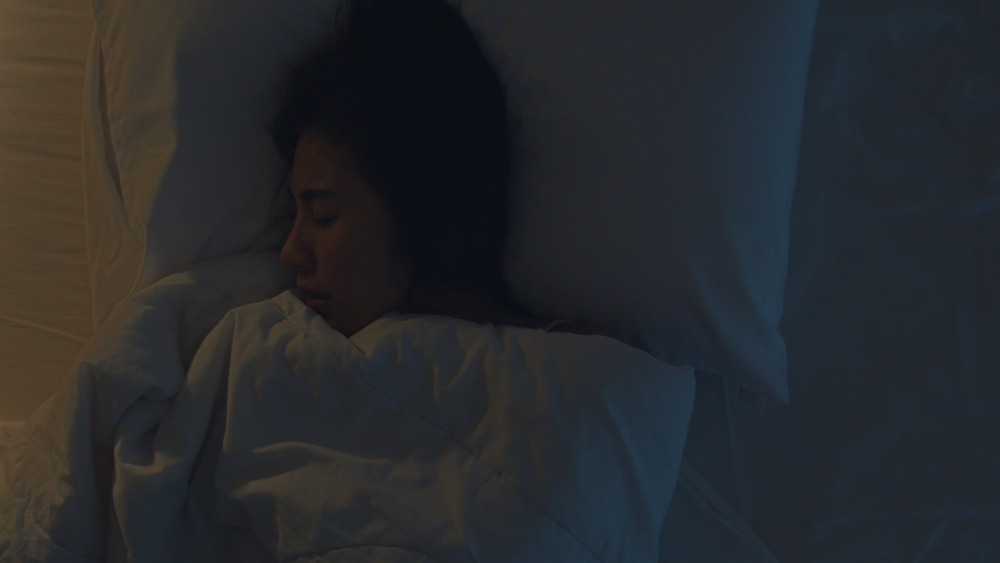Sleep is as essential to our well-being as food and water, yet many of us struggle to close our eyes at night. This restless battle often worsens with anxiety-induced insomnia — a common but disruptive bedfellow. Taming the nocturnal echoes of daytime stress might seem like an insurmountable task, but reclaiming the sanctity of sleep is within reach with some targeted strategies. Let’s explore practical ways to manage anxiety-induced insomnia and ease into the serene slumber our minds and bodies deserve.
Understanding the Nightly Battle With Anxiety
When the lights go out, the stage is often set for anxiety to step into the spotlight. The absence of daytime distractions can leave us alone with our thoughts — a mental playground that can spiral into worry, what-ifs, and worst-case scenarios. This relentless cycle can be mentally and physically exhausting, translating into long, sleepless nights.
Anxiety can supercharge our brain’s amygdala, the alarm system for stress, provoking the fight-or-flight response when there’s no real danger. This reaction is brilliant in the face of actual threats, awakening our brain and body for action. However, with anxiety disorders, this system is falsely triggered, creating an invisible enemy that disrupts our peace, especially at bedtime.
Strategies for a Restful Night’s Sleep
Establish a Pre-Sleep Ritual
Leading up to bedtime, engage in calming activities that signal to your brain that it’s time to wind down. Dim the lights, listen to soothing music, or practice gentle yoga to transition your body into sleep mode.
Journal Your Thoughts: Spend a few minutes jotting down your thoughts, worries, and to-dos for the next day. This practice can act as a mental purge, reducing the chatter that can prevent sleep.
Curate Your Sleep Environment
Your bedroom should be a sleep sanctuary. Ensure your sleeping area is dark, quiet, cool, and comfortable. Consider investing in blackout curtains, earplugs, or a white noise machine to maintain a sleep-inducing atmosphere.
Sleep Schedule Consistency
Our bodies thrive on routine. Going to bed and waking up at the same time every day, even on weekends, can reinforce your natural sleep-wake cycle, enhancing sleep quality over time.
Mind Your Diet and Exercise
Avoid Late Night Munching: Eating heavy meals or snacks too close to bedtime can keep you awake. Try to finish eating several hours before bed to allow digestion to occur while you’re still upright.
Exercise Regularly: Physical activity can promote better sleep, helping you to fall asleep faster and enjoy deeper sleep. Avoid intense workouts close to bedtime, as they can increase adrenaline levels, making it harder to wind down.
Tech-Free Zone
The blue light from screens can suppress the natural production of melatonin, the hormone that regulates sleep. To curb this, switch off electronic devices at least an hour before bedtime.
Embrace Relaxation Techniques
Mindfulness Meditation: Engage in mindfulness or guided meditation to calm your mind. Focusing on your breath and releasing tension from your body can be particularly effective.
Progressive Muscle Relaxation: This involves tensing and then relaxing different muscle groups in order, which can reduce physical tension and encourage sleepiness.
Consider Supplements and Herbs
Some people find relief with supplements like melatonin or herbal teas that promote relaxation. Always consult with a healthcare professional before adding any supplements to your routine, as they can interact with other medications and are not suitable for everyone.
Seeking Professional Help
Sometimes, self-help strategies may not suffice, especially when anxiety severely impacts sleep quality. Mental health professionals can offer specific treatments, like cognitive-behavioral therapy (CBT) for insomnia or other evidence-based interventions, to address the underlying anxiety contributing to sleep issues.
Final Thoughts on Finding Nocturnal Bliss
Managing anxiety-induced insomnia requires a multifaceted approach that encompasses lifestyle adjustments, mental health strategies, and potentially professional intervention. Patience and persistence are key.
By establishing conducive sleep habits and addressing anxiety directly, a path to restful nights and brighter mornings emerges. Remember, every small step towards better sleep hygiene is a step toward a more balanced, healthier life. Sleep well, dream better, and wake up to a world of refreshed potential each day.
FAQs
1. What is the relationship between anxiety and insomnia?
Anxiety and insomnia can often coexist. Anxiety can make it difficult to fall asleep or cause one to wake up frequently during the night. This lack of restorative sleep can then exacerbate anxiety, creating a challenging cycle of stress and sleeplessness.
2. How can I quiet my mind to fall asleep when I’m feeling anxious?
Participating in relaxation techniques before bedtime can be beneficial. This includes practices such as deep breathing exercises, progressive muscle relaxation, mindfulness meditation, or listening to calming music. Establishing a pre-sleep routine that signals your body to wind down is also beneficial.
3. How much does diet affect my sleep when dealing with anxiety-induced insomnia?
Diet plays a significant role in sleep quality. Heavy meals close to bedtime can disrupt sleep, and stimulants like caffeine or sugar can keep you awake. Eating balanced meals throughout the day and avoiding these sleep inhibitors in the evening can help.
